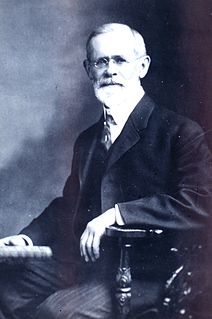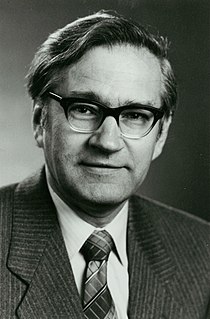A Quote by Ralph Waldo Emerson
But there is no end to the praise of books, to the value of the library. Who shall estimate their influence on our population where all the millions read and write ? It is the joy of nations that man can communicate all his thoughts, discoveries and virtues to records that may last for centuries.
Related Quotes
I shall be so glad if you will tell me what to read. I have been looking into all the books in the library at Offendene, but there is nothing readable. The leaves all stick together and smell musty. I wish I could write books to amuse myself, as you can! How delightful it must be to write books after one's own taste instead of reading other people's! Home-made books must be so nice.
There is nothing for it but for all of us to invent our own ideal libraries of classics. I would say that such a library ought to be composed half of books we have read and that have really counted for us, and half of books we propose to read and presume will come to count—leaving a section of empty shelves for surprises and occasional discoveries
He is no true reader who has not experienced the reproachful fascination of the great shelves of unread books, of the libraries at night of which Borges is the fabulist. He is no reader who has not heard, in his inward ear, the call of the hundreds of thousands, of the millions of volumes which stand in the stacks of the British Library asking to be read. For there is in each book a gamble against oblivion, a wager against silence, which can be won only when the book is opened again (but in contrast to man, the book can wait centuries for the hazard of resurrection.)
The noblest calling in the world is motherhood. True motherhood is the most beautiful of all arts, the greatest of all professions. She who can paint a masterpiece, or who can write a book that will influence millions, deserve the plaudits and admiration of mankind; but she who rears successfully a family of healthy, beautiful sons and daughters whose immortal souls will exert influence throughout the ages long after paintings shall have faded, and books and statues shall have decayed or been destroyed, deserves the highest honor that man can give, and the choicest blessings of God.
Are we to have a censor whose imprimatur shall say what books may be sold, and what we may buy? And who is thus to dogmatize religious opinions for our citizens? Whose foot is to be the measure to which ours are all to be cut or stretched? Is a priest to be our inquisitor, or shall a layman, simple as ourselves, set up his reason as the rule of what we are to read, and what we must believe?
It is the consciousness of the threefold joy of the Lord, His joy in ransoming us, His joy in dwelling within us as our Saviour and Power for fruitbearing and His joy in possessing us, as His Bride and His delight; it is the consciousness of this joy which is our real strength. Our joy in Him may be a fluctuating thing: His joy in us knows no change.
Few people ask from books what books can give us. Most commonly we come to books with blurred and divided minds, asking of fiction that it shall be true, of poetry that it shall be false, of biography that it shall be flattering, of history that it shall enforce our own prejudices. If we could banish all such preconceptions when we read, that would be an admirable beginning.
But these dear boys and girls--there is, something to be made out of them. If now they yield themselves to Christ they may have a long, happy, and holy day before them in which they may serve God with all then hearts. Who knows what glory God may have of them? Heathen lands may call them blessed. Whole nations may be enlightened by them. O brethren and sisters, let us estimate children at their true valuation, and we shall not keep them back, but we shall be eager to lead them to Jesus at once.
He is not famous. It may be that he never will be. It may be that when his life at last comes to an end he will leave no more trace of his sojourn on earth than a stone thrown into a river leaves on the surface of the water. But it may be that the way of life that he has chosen for himself and the peculiar strength and sweetness of his character may have an ever-growing influence over his fellow men so that, long after his death perhaps, it may be realized that there lived in this age a very remarkable creature.









































